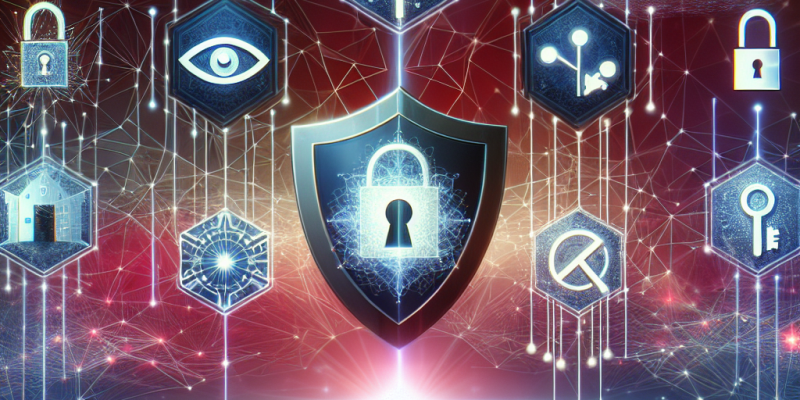Top 5 Cybersecurity Tools Every Business Should Implement Today

In an increasingly digital world, the importance of robust cybersecurity measures cannot be overstated. Cyber threats are becoming more sophisticated and prevalent, targeting businesses of all sizes and sectors. As a result, implementing effective cybersecurity tools is not just a recommendation but a necessity for protecting sensitive data and ensuring business continuity. Here, we highlight the top five cybersecurity tools every business should consider integrating into their operations today.
1. Firewall Protection
Firewalls serve as the first line of defense for any organization. Acting as a barrier between internal networks and external traffic, firewalls monitor and control incoming and outgoing network traffic based on predetermined security rules. There are various types of firewalls available, including hardware firewalls, software firewalls, and next-generation firewalls (NGFW).
Why It’s Essential:
A robust firewall helps prevent unauthorized access to your network and shields sensitive data from cybercriminals. With features like intrusion detection and prevention capabilities, firewalls can automatically block suspicious activities, making them a critical component of any cybersecurity strategy.
2. Antivirus and Anti-Malware Software
Despite being basic cybersecurity tools, antivirus and anti-malware software remain fundamental in protecting businesses from a wide range of threats, including viruses, malware, phishing attacks, and ransomware. These tools scan files and applications for known threats and provide real-time protection from new, emerging threats.
Why It’s Essential:
With the rising number of malware attacks, having reliable antivirus software is vital for maintaining system integrity. Regular updates ensure that the software can defend against the latest threats, while real-time scanning helps detect and remove harmful software before it can cause damage.
3. Security Information and Event Management (SIEM)
SIEM tools collect and analyze security data from across the organization’s network in real-time, helping to identify potential security threats and breaches as they occur. By aggregating logs and alerts from various sources, SIEM provides a centralized view of an organization’s security posture.
Why It’s Essential:
SIEM solutions enable businesses to respond to incidents more quickly and effectively. By using advanced analytics and correlation techniques, SIEM can detect anomalies that may indicate a potential breach, allowing teams to take immediate action and reduce the impact of a cyber incident.
4. Password Management Solutions
Weak passwords are a significant vulnerability for many organizations. Password management tools help create, store, and manage complex passwords, enhancing security by reducing reliance on simple or reused passwords. Many of these tools offer features like password generation and secure sharing.
Why It’s Essential:
By implementing a password management solution, businesses can enforce stronger password policies and ensure that employees use unique, complex passwords for different services. This drastically reduces the risk of unauthorized access due to password compromise, which is a common entry point for cyber attackers.
5. Multi-Factor Authentication (MFA)
Multi-Factor Authentication adds an additional layer of security beyond just a password. MFA requires users to provide two or more verification methods to gain access to an account or system, often involving something they know (password), something they have (security token), or something they are (biometric verification).
Why It’s Essential:
MFA significantly reduces the risk of unauthorized access to sensitive information and systems. Even if an attacker manages to obtain a user’s password, they would still need the additional verification factor, making it much harder for them to breach an account.
Conclusion
Cybersecurity is no longer a luxury but a necessity for businesses in today’s digital landscape. The tools outlined above—firewalls, antivirus and anti-malware software, SIEM systems, password management solutions, and MFA—are crucial for forming a comprehensive cybersecurity strategy. By implementing these tools, businesses can safeguard their data, enhance their security posture, and ultimately protect their reputation in a world where cyber threats are ever-evolving. Investing in robust cybersecurity measures not only mitigates risks but also builds trust with customers and stakeholders, laying the groundwork for long-term success.














